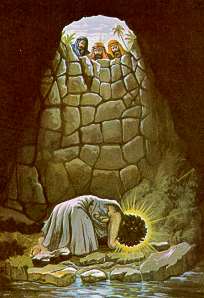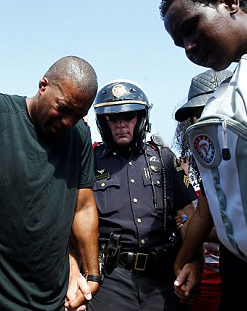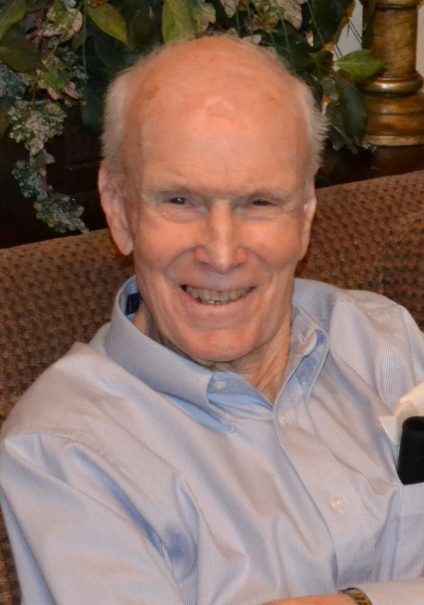Background Passage: Lamentations 3:1-25
You’ve seen them in magazines at the grocery store checkout line. Heard them listed in television newscasts. It’s that time when we look back upon the preceding 12 months and remember the major news events of the year. Depending on the organization creating the list, you’ll find celebrity marriages and deaths, natural disasters and human tragedies highlighting the lists.
The Associated Press ranked the following among its top 10 world news events this year:
• U.S. Election
• Brexit
• Black Lives Matter
• Worldwide Terror Events
• Attacks on Police
• Democratic Party Email Leaks
• Syrian Civil War
• Supreme Court Vacancy
• Hillary Clinton’s Emails
The thread of turmoil runs within all of these news stories. It’s difficult to determine whether the upheaval these events caused will eventually bring about something good. So, we look with promise of a new year to settle things down again, hoping that any negative consequences of these events do not touch us or our families.
But what about your personal year in review? If you had to list the top news events in your life for 2016, what would they be? Here’s my list (in chronological order).
• Our 40th wedding anniversary
• Retirement from full-time work
• An uncle’s stroke
• A cruise with friends in the Baltic
• Signing with a new book publisher
• Teaching part-time at the university
• Father diagnosed with cancer
• Death of several friends
• Birth of Amelia, our 2nd granddaughter
• Mother-in-law’s stroke
When I thought about this list, the first events I recalled were the bad news events…the diagnoses and the deaths. That’s human nature I suppose. It’s comforting to know that our days are filled with moments of joy amid the personal turmoil created by some life events. Yet, in those times when trouble falls like rain from a thunderstorm, life feels oppressive and overwhelming.
The writer of Lamentations in the Old Testament probably felt much the same way. The crushing nature of life events left him mourning for the nation of Israel and crying out on behalf of the people who faced the consequences of their own rebellion against God. He counted himself among them. Chapter 3 reads like a “Top 10” list of the devastating physical and emotional conditions in which the writer found himself…
• “…I am a man of affliction…”
• “…driven me away…”
• “…besieged and surrounded me with bitterness and hardship…”
• “…dwell in darkness…”
• “…weighed me down in chains…”
• “…made me a target…”
• “…pierced my heart…”
• “…became the laughingstock…”
• “…deprived of peace…”
• “…mocked me in song…”
Yet, the writer of Lamentations refused to abide in the circumstances. Refused to let life events control his spiritual condition. The crux of his faith centers on a confession he makes in Lamentations 3:21-23.
“Yet this I call to mind and therefore I have hope. Because of the Lord’s great love, we are not consumed for his compassions never fail. They are new every morning; great is your faithfulness. I say to him, ‘The Lord is my portion. Therefore, I will wait for him.”
As we must deal at times with events of life that suck the breath from our lungs and threatened to stop our hearts from beating, we must understand what this writer knows. Though the issues bubble never far from our thoughts, we still have hope. How is this possible?
God loves us. Pure and simply. His compassion and mercy flows always in abundance and prevents us from being eaten up or overwhelmed by that which we face. He proved it so in the past and continues to this day. His love never fails. Never.
Here’s the part that I really like. His mercies, his compassions, come new every morning. Fresh. Sustaining. We don’t have to rely on grace remembered that came once and never comes again. The dawn of each new day brings with it God’s abiding and unfailing love. Each day. Every day. God’s faithfulness is sufficient for our needs. So, as the writer declares, “I will wait for him” to carry me through the day…I will rest my hope in him.
Our ability to wait for him is built upon our history with God. Our knowledge of God and who he is strengthens our faith in difficult and uncertain times. For when we know what kind of God it is we trust…one whose mercies arise new each morning…we can remove the baffling and troubling aspects of life from our shoulders and place them instead in his hands.
This is my challenge to you. Reflect upon your year and remember that God’s love never fails. His compassions arise new every morning. Despite the difficulties you’ve experienced and those that are sure to come in 2017, let God be your portion. Wait for him.
May you enjoy a blessed new year.









